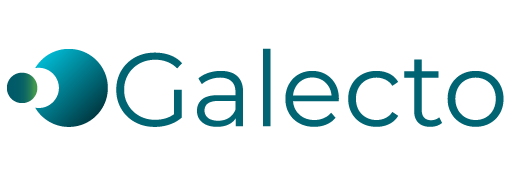Galecto Announces Clinical Collaboration with Roche for Phase 2 Trial of GB1211 in Combination with Atezolizumab in First Line Non-Small-Cell Lung Cancer
Upcoming Phase 2 trial marks expansion of
Additional information relating to Galecto’s oncology programs will be provided at upcoming R&D Day on
Under the terms of the agreement,
“Our galectin-3 asset, GB1211, has shown compelling anti-cancer effects in preclinical models, specifically in NSCLC tumors high in galectin-3 and resistant to anti-PD-1/-L1,” said Dr. Hans Schambye, CEO of
Dr. Schambye continued, “This phase 2a trial of GB1211 further expands our scope into oncology. Many cancers use galectin-3 to avoid immune recognition through interaction with LAG-3, TGF-β, interferon gamma and K-Ras. We have shown that GB1211 is able to counter these effects and increase check-point inhibitor efficacy in cancer models. Therefore, we believe that our galectin-3 inhibitors could represent a new and exciting option to treat cancer with a low level of toxicity.”
The phase 2a trial of GB1211 in combination with Tecentriq will be a 1:1 randomized, double blind, placebo-controlled trial in up to 70 patients with NSCLC in the first line setting. The trial is designed to evaluate safety and tumor shrinkage; additionally, it will explore RECIST tumor response, clinical activity and immune biomarkers.
About GB1211
GB1211 demonstrated an anti-cancer effect and antifibrotic activity in multiple preclinical models and has successfully completed a Phase 1 trial in 78 healthy volunteers. In the Phase 1 trial, GB1211 was well-tolerated and had dose-dependent pharmacokinetics.
About Galectin-3 in Oncology
Galectin-3 is overexpressed in many tumors and supports tumor proliferation, metastasis and immune attack avoidance. Galectin-3 binds to macrophage Tyro-3, T-cell LAG3, interferon gamma and the K-Ras complex. By inhibiting the galectin-3 binding to these key molecules and cells, an important direct effect can be achieved, similar to checkpoint inhibition, as well as a potential therapeutic synergy.
Clinical data in NSCLC has shown that patients with high tumor staining (>70%) with galectin-3 generally respond poorly to checkpoint inhibition. This biomarker could, if confirmed, offer a method to select patients in NSCLC and other tumors, which could increase the likelihood of response.
About
For more information, please visit www.galecto.com.
Forward-Looking Statements
Certain statements in this press release are forward-looking statements that involve a number of risks and uncertainties. Such forward-looking statements include statements about the potential efficacy of GB1211 in combination with atezolizumab (Tecentriq®) in NSCLC patients; the timing of initiating clinical trials and providing topline data for Galecto’s product candidates, including GB1211 in NSCLC; and Galecto’s focus and plans for clinical development of its product candidates and pipeline. The words “may,” “will,” “could,” “would,” “should,” “expect,” “plan,” “anticipate,” “intend,” “believe,” “estimate,” “predict,” “project,” “potential,” “continue,” “target” and similar expressions are intended to identify forward-looking statements, although not all forward-looking statements contain these identifying words. For such statements,
For more information, contact:
| Hans Schambye, CEO |
|
| +45 70 70 52 10 | |
| Investors/US | Media/EU |
arr@lifesciadvisors.com +1 617 430 7577 |
svonderweid@lifesciadvisors.com +41 78 680 0538 |

Source: Galecto, Inc.
